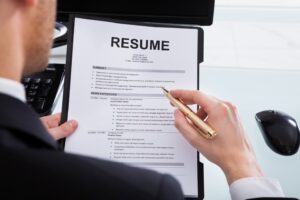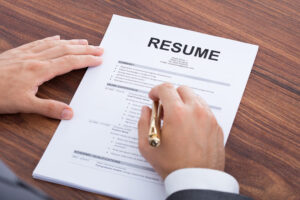5 Tips To Make Your Resume Stand Out
Your resume is one of the most important factors in getting the right interviews and offers. But what should your resume look like? What should it include? Just as importantly, what should it not include? How can you make the most impact with it? To help you answer these questions for yourself, here are five easy tips for a resume that gets the job done. 1. Keep it Short and Simple In an effort to make their resumes stand out, some applicants go to extra lengths to include every accomplishment, every job, or every skill. They may use flowery words or an eye-catching design on paper or in fonts. In general, though, simplicity and directness will reach the hiring manager’s eye more than fluff. Keep your resume as short as is feasible. Use bullet points rather than long paragraphs. And use simple fonts. 2. Pick the Right Order What order should you use to list your jobs, experience, accomplishments, and more? Chronological order is best for most resumes. Your most recent skills and training are usually the most relevant to today’s workplace. However, there are exceptions if you are an older worker, new to employment, or have gaps in your resume. These applicants may want to highlight their skills rather than the order of their jobs. 3. Know What to Customize Once you craft a resume, your work is not done. Make yourself stand out by customizing some of that resume to each job you apply for. This takes extra time and energy but helps you stand out better. Make this customization work easier by identifying and limiting where you make changes each time. This turns your original resume into a template with specific areas you adjust as needed. For example, you might only need to personalize the beginning summary and a few bullet points in your most recent job to tailor it to a specific skill set. Keep a list of bullet points you can interchange as needed. 4. Make It Tangible Employers want tangible, identifiable accomplishments rather than just a list of job functions. Begin with a short summary of what makes you the best candidate. This is just a sentence or two at the top of the resume, which highlights your experience and skills. Consider this a short sales pitch that whets the appetite for details to come below. When describing your skills and experience, use action















